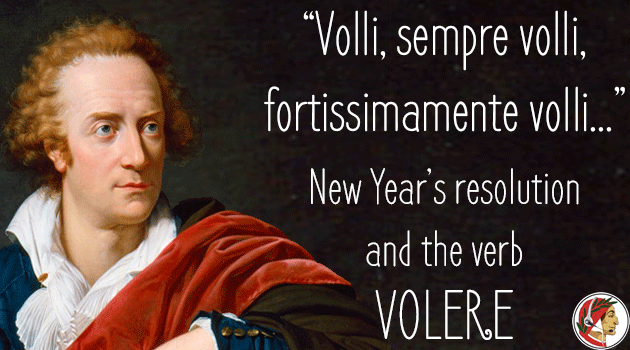Ho notato che nel blog mancava un articolo decente in italiano sui verbi modali. Eccolo, con un quiz
Spulciando vecchi libri di grammatica italiana, ho notato che non c’è quasi mai un capitolo dedicato ai verbi modali. La famosa Grammatica della lingua italiana edita da Zanichelli (disclaimer: non lavoro per Zanichelli) che non manca mai sugli scaffali degli studenti italiani, dedica una paginetta scarsa ai verbi modali, chiamati anche verbi servili.
Cosa sono i verbi modali? A che servono? Quali e quanti sono?
I verbi modali principali sono quattro: dovere, potere, volere e sapere. Quest’ultimo presenta alcune differenze con gli altri tre e non sempre si comporta come verbo modale, ma rientra nella categoria. Ne esistono poi altri che vengono considerati raramente come tali. Per esempio, preferire e desiderare.
Mi limiterò ad analizzare in dettaglio i principali quattro, ma aggiungerò preferire e desiderare agli esempi. Spesso, sapere, preferire e desiderare non seguono le regole dei verbi modali. Ci sono alcune frasi nel quiz che evidenziano tali diversità. Se volete, possiamo parlarne a lezione su Skype.
I verbi modali hanno la caratteristica di associarsi a un secondo verbo, sempre all’infinito e senza preposizioni, e di cambiarne il significato. In particolare, aggiungono al verbo principale una funzione specifica:
- Necessità: dovere
Dovrei andare in bagno.
- Possibilità: potere
Non ho potuto chiamarti.
- Volontà: volere
Avrei voluto essere al concerto ieri sera.
- Capacità: sapere
Non hai saputo rispondere alle domande dell’esame.
A queste quattro funzioni principali possiamo aggiungere la preferenza e il desiderio.
- Preferenza: preferire
Preferirei non lavorare il fine settimana.
- Desiderio: desiderare
Desiderate ordinare altro?
Quindi, ricapitolando, le frasi costruite con i verbi modali hanno sempre il verbo principale all’infinito e non hanno preposizioni. In altre parole, non troveremo mai frasi come:
- Voglio di andare al cinema. 👎🏻
- Voglio vado al cinema. 👎🏻
- Voglio andare al cinema. 👍🏻
Naturalmente, i verbi modali sono presenti in tutte le coniugazioni, nei tempi semplici e composti, all’indicativo, congiuntivo, condizionale, imperativo, gerundio eccetera.
Scriverò adesso una serie di frasi con i verbi modali, senza dirvi quale sia il tempo e il modo di riferimento. Le frasi sono tutte corrette. Cercate di capirle senza tradurle nella vostra lingua.
- Da ragazza, Laura voleva diventare attrice, ma non ha potuto.
- Gianni non aveva voluto salutarmi l’ultima volta, ma oggi ci siamo visti.
- Garibaldi potè conquistare l’Italia del sud grazie a un esercito di volontari.
- Se da giovane avessi saputo suonare la chitarra, sarei potuto diventare famoso.
- Volendosi sposare in primavera, Giorgia e Lucio hanno preferito risparmiare.
- Perché non siete voluti venire al mare con noi?
- Mi dovete pagare l’affitto, siete in ritardo!
- Se volessi svegliarmi sempre alle otto, mi dovrei preparare in fretta e furia per arrivare in tempo.
- Avete saputo trovare la strada facilmente?
- Signora, dovrebbe gentilmente mettere una firma qui sotto.
- Scusi, non vorrei disturbarla. Mi saprebbe dire come potremmo uscire dall’edificio?
- Federico avrebbe potuto cambiare lavoro ma non ha voluto.
- Vorrei potere comprare una casa più grande, però non saprei procurarmi i soldi necessari.
- Mi sono dovuto fare una doccia fredda perché la caldaia è rotta.
Alcune precisazioni necessarie.
Quando dobbiamo scegliere tra essere o avere come ausiliare nei tempi composti, di solito si guarda il verbo principale. In altre parole:
- Sono dovuto uscire presto.
- Avrei dovuto chiedere il permesso.
Se il verbo principale è essere, l’ausiliare è avere.
- Avresti potuto essere più gentile.
Quando il verbo principale è omesso, si usa sempre avere.
- Volevamo stare più tempo con voi ma non abbiamo potuto.
I pronomi possono trovarsi prima del verbo modale oppure dopo, attaccati all’infinito del verbo principale.
- Mi voglio divertire / Voglio divertirmi.
Con i verbi riflessivi, o dove normalmente troviamo essere nei tempi composti, la scelta tra essere e avere dipende dalla posizione del pronome. Se il pronome viene messo davanti al verbo, dobbiamo usare essere, altrimenti dobbiamo usare avere.
- Mi sono voluto divertire / Ho voluto divertirmi.
- Ci sono voluto andare / Ho voluto andarci.
Un’ultima parola sull’italiano e l’inglese a confronto.
Quelli di voi che parlano l’inglese come prima lingua sono spesso tentati di usare i verbi modali italiani come diretta traduzione di must, can, want, might, have to, eccetera.
La tentazione diventa quasi una regola quando si studia il condizionale. Gli studenti madrelingua inglese tendono a usare i verbi modali in sostituzione del condizionale.
- Tornerei a casa prima.
- Vorrei tornare a casa prima.
La traduzione ha senso, ma non c’è sempre perfetta aderenza tra l’italiano e l’inglese. Nella frase dell’esempio, la volontà non è chiaramente espressa dal condizionale. Forse chi parla vorrebbe dire “potrei tornare a casa presto“. Dipende dal contesto. Se per voi è più facile usare i verbi modali, fate pure.
Sono sicuro di avere omesso dei dettagli. Se volete aggiungere considerazioni o domande, potete farlo nei commenti. Alla prossima.
- 1
- 2
- Answered
- Review
-
1. Question
I verbi modali
Quiz di livello avanzato
esercizio di ripasso
Seleziona le frasi corrette e controlla il tuo punteggio
Potrebbero essere tutte giuste o tutte sbagliate. Fai attenzione.
Antonio Donghi – Donna al caffè – 1931 – Venezia, galleria d’arte moderna Cà Pesaro





